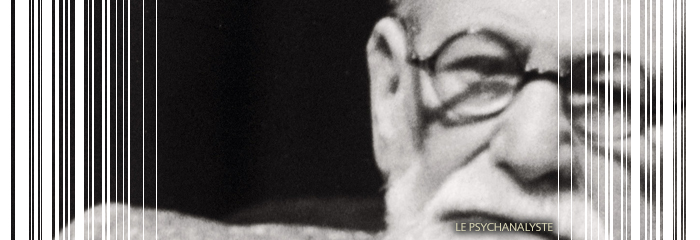
Radio theatre adapted from Leslie Kaplan’s novel “Le Psychanalyste.”
With: Simon Scop, Marcial Di Fonzo Bo
Clarinet: Philippe Berrod
The Id: Agnès Sourdillon
Piano: Raminta Dombrowski
Eva: Frédérique Loliée
Cello: Eric Picard
The lecturer: Philippe Fretun
Elise Caron, horn: Joël Jody
Accordion: Pascal Contet
Percussion: Hélène Colombatti
Violin: Eiichi Chijiiwa
Original music: Luis Naón
Director: Claude Guerre
Le Psychanalyste was published by Éditions POL.
The idea to adapt Leslie Kaplan’s Le Psychanalyste (POL, 1999, and then Folio) in radio theatre was born after Marcial di Fonzo Bo read it at the Avignon Festival in 2004, and also because “radio theatre’s” form – What is happening? What can happen? – can resonate with the book’s central purpose: to understand the characters from the point of view of the acting subconscious, like the psychoanalyst: to make a portrait of ordinary heroes, heroes of thought. In that way a central place is given to the word and the voices, because of the therapy sessions, but also because thought is many times expressed in the form of a monologue – the narration is interrupted with short chapters, all of which have its own ending, and relaunch the narrative adding suspense to it as a whole: What is going to happen? What could possibly happen? We are, from the beginning, in a polyphony, a variety of characters and voices, the possibility of making different elements interact: the style and the manner of expression, the tone and the tonality, the pronunciation and each person’s points of view. This polyphony is conceived as a way of exploring the contemporary world, each person follows only their questions but in the same world, each person connected to the rest, in a relationship with the rest; the suburbs’ social reality, violence and hopelessness are not shown through the characters and their words, leaving aside the naturalist short-sightedness, by introducing a truly dramatic dimension, in relation to psychoanalysis ethics and the discovery of the subconscious. There are passages that seem to be closer to an essay or a reflection on psychoanalysis, about its history and its current state in the world, as well as the cinema, the theatre. These reflections are integrated by the characters speech which, contrarily to a closed-minded knowledge, allows us to think “with” Kafka, Freud, Arendt and others, in a dialogue with the characters. The process of staging by Claude Guerre, the original music by Luis Naón, the drama game of the actors, all this constitutes a real fresco of “alive life”. Simós is an analyst. He is penetrating, full of humor and open to chance. WIth him, in his office, the analysed patients, their tragic and funny stories, their questions, what happens during and out of sessions. On the other end, Eva, a woman, tries to think about the world and about life through the reading and rereading of Kafka. In both cases it is all about thinking. All the characters from this book are heroes who face the conflict between the desire for the truth and their passion for ignorance: they are heroes because of their thoughts, they are thoughts heroes. And at the same time they are common people like us. If we think we are alive, we change, we can change. Then, naturally, a lot of things happen: the narration is continuous development, just like identity it is never given because it is in every detail that meaning appears, and this meaning is linked to every detail. This is way the last word belongs to the world, this endless collection of details and possibles.



